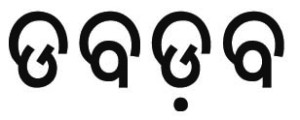I have received a comment on my continuing opposition to change of the English spelling of my motherland and mother tongue from an esteemed reader Sri Deba Prasad Parija. I could have replied to him on the dashboard itself. But, as I feel that it would be better if the debate continues, I deem it proper to post my reply on the major area of my page. So, here it is.
Sri Parija has written:
So we should change our pronunciation as the foreigners pronounce? If not then what wrong to correct the mispronunciation. I am sorry to tell some time we try to show our knowledge. Why we bother how Britishers call us, we have got them out and now time to correct our names. You may accept or not but 99.999999…%Odia has approved it even before the Bill was passed. Bande Utkal Janani.
My reply is:
Dear Sri Parija,
Thanks for the time given to the article.
You have perhaps not gone into the articles linked to this article and therefore, wrongfully attributed Orissa or Oriya to pronunciation by foreigners.
From “Ordia” as in Purnachandra Bhashakosha to “Oriya” as developed by founding fathers of our resurrected State, our own pronunciation of D used in second and onward position in an Oriya word has evolved into the shape of this transliteration, when Oriya had attracted foreigners’ attention and our founding fathers – Kulabruddha Madhusudan Das et al – had the need to project Orissa before the foreign community.
Orissa and Oriya are the names in which our founding fathers had decided our motherland and mother tongue to be mentioned in English.
And, their decision was based on their pride in the archaic uniqueness of our language, that they had wanted the world to know.
The Kera-Oriya Naveen Patnaik, who, despite being in power for so many years, has not learned our language as yet, and his sycophants in the cabinet and the Assembly, and packs of habitual order carriers in bureaucracy and fellows in Parliament that do not know anything of the uniqueness of Oriya language have played this mischief against our mother tongue and heritage.
If, according to you, “99.999999…% of our people has approved” this mischief, it is necessary for history to take that so many people have been reduced to such pusillanimous condition within a decade of demoralizing misrule, that they – recognized from the times of the Epics to the British time as the bravest people in India – have lost their courage to go against the whimsical and capricious decisions of the Government.
But had the spelling change been ever subjected to plebiscite? Where from you got the statistics that 99.999999…% of our people have approved the spelling change “even before the Bill was passed”? Be honest. Be honest in contributing to living history, if you can.
In all my articles on this subject in these pages I have shown the distinction of D that forms the crux of this issue. For ready reference, I am placing this picture –

Mark the two shapes of the single Oriya alphabet.
The archaic magnificence of Oriya language lies in this alphabet. When the letter is used in the first position of a word the first shape is used as in DARA.

 When the letter is used after the first alphabet in a word, its second shape with the dot underneath is used as in MADAKA.
When the letter is used after the first alphabet in a word, its second shape with the dot underneath is used as in MADAKA.

To understand the distinction, mark the word DABADABA. Here the word has 2 uses of D. There is no dot under D, which is used at the beginning of the word. But there is a dot under D which is used as the third letter in the word.
The uniqueness of Oriya language lies in this. The single alphabet D appears in two forms: D in the first position of a word and D with dot underneath in subsequent positions. Therefore, the alphabet in second position has a dot underneath as in the name of our motherland and in the name of our mother tongue.

This deference in situational shape of the single alphabet D, had given birth to use of R in place of D in the second or any later position in a word, as our founding fathers had preferred to show the world our distinction.
The change that the Kera-Oriya Naveen Patnaik has brought out in English spelling of the name of our motherland and mother tongue is against the archaic magnificence and classical distinction of our language over and above being an offense against our founding fathers.
The concerned law is a bad law and needs rejection with utmost contempt by everybody to whom Oriya’s linguistic beauty and archaic magnificence are matters of pride.
Kind Regards,
Subhas Chandra Pattanayak


1 comment » Write a comment